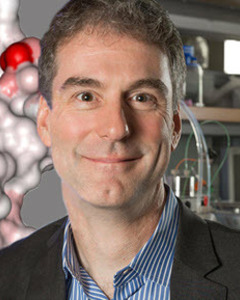Brian Baker

Coleman Professor of Life Sciences
University of Notre Dame
Development of improved immunological therapies for cancer-based on cellular immunity
Many projects in the lab are centered on the basic structural, biophysical, and immunological principles of TCR recognition of peptide/MHC complexes. The TCR-peptide/MHC interaction is one of the most complex protein-ligand interactions in biology. We aim to understand the complexities from a physical perspective, relying not only on structural biology, but also on experimental and computational biochemistry, modeling and simulation, molecular immunology, and a growing amount of machine learning and data science.
As we gain insight into how T cells and TCRs recognize targets, we are using this knowledge to engineer immune receptors and cells with improved recognition properties, with the long-term goal of improving immunological therapeutics. Related to this is the development of peptide-based therapeutic and preventative vaccines. Other work is centered on understanding how recognition signals are communicated across cell membranes. Here, we aim to gain a deeper understanding of the molecular changes that occur upon receptor binding and how these influence protein architecture, protein motion, and the connectivity with cell signaling units.
We have a special interest in the immune response to cancer. There is a close connection between cellular immunity and cancer: some of the earliest cancer treatments of the modern era focused on eliciting or enhancing anti-cancer immune responses, and the last several years have seen rapid growth in cancer immunotherapy. We study the development and enhancement of personalized cancer vaccines as well as sophisticated approaches that involve the creation of genetically engineered immune systems for cancer patients. In these areas, we leverage our understanding of the structural and biophysical underpinnings of immune recognition to help advance cancer immunotherapy.
The Baker lab does not work with human subjects or clinical samples, nor do we perform in vivo experiments, although we have collaborations with translational laboratories that do so through experiments with animal models or clinical trials.